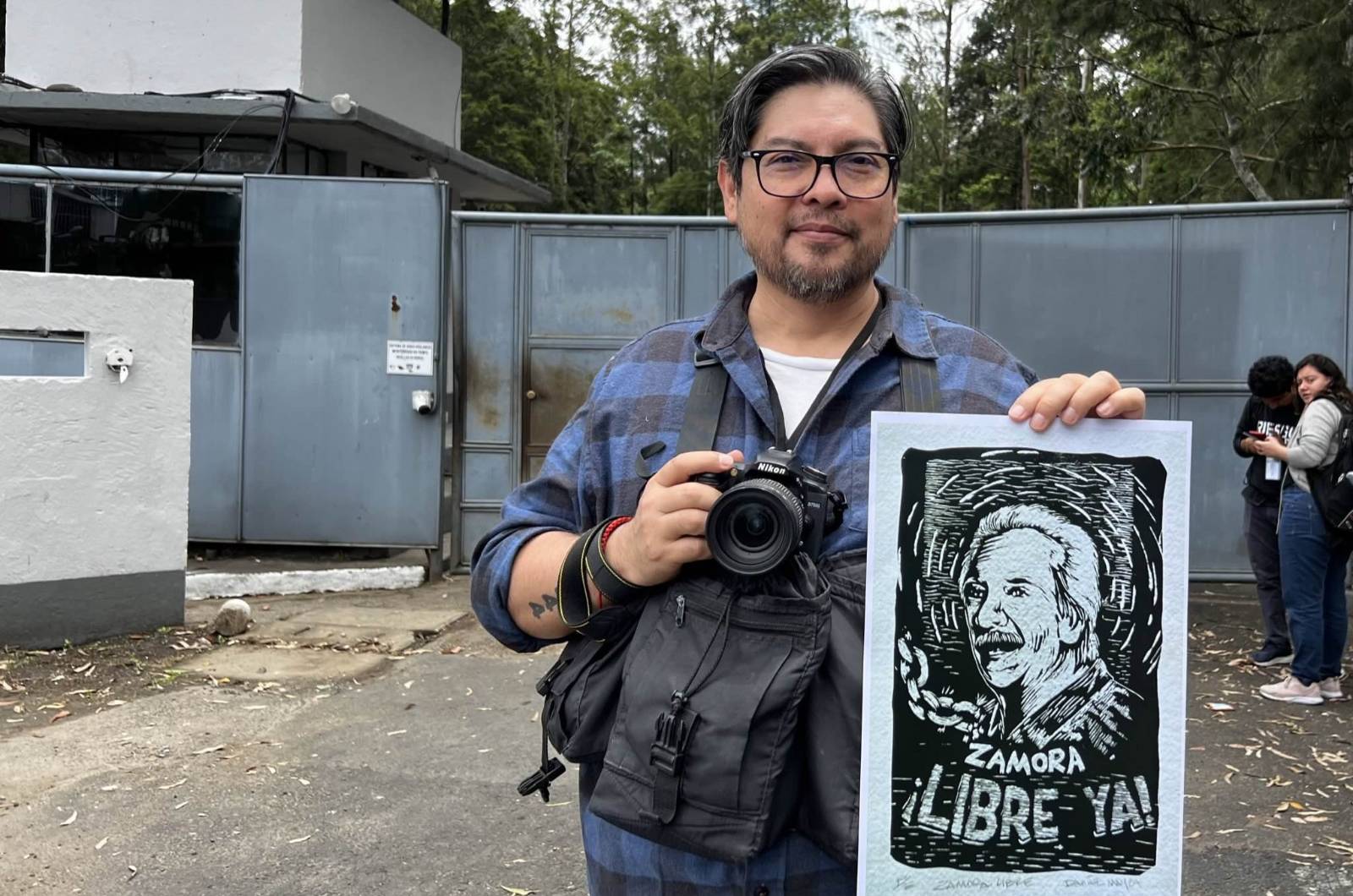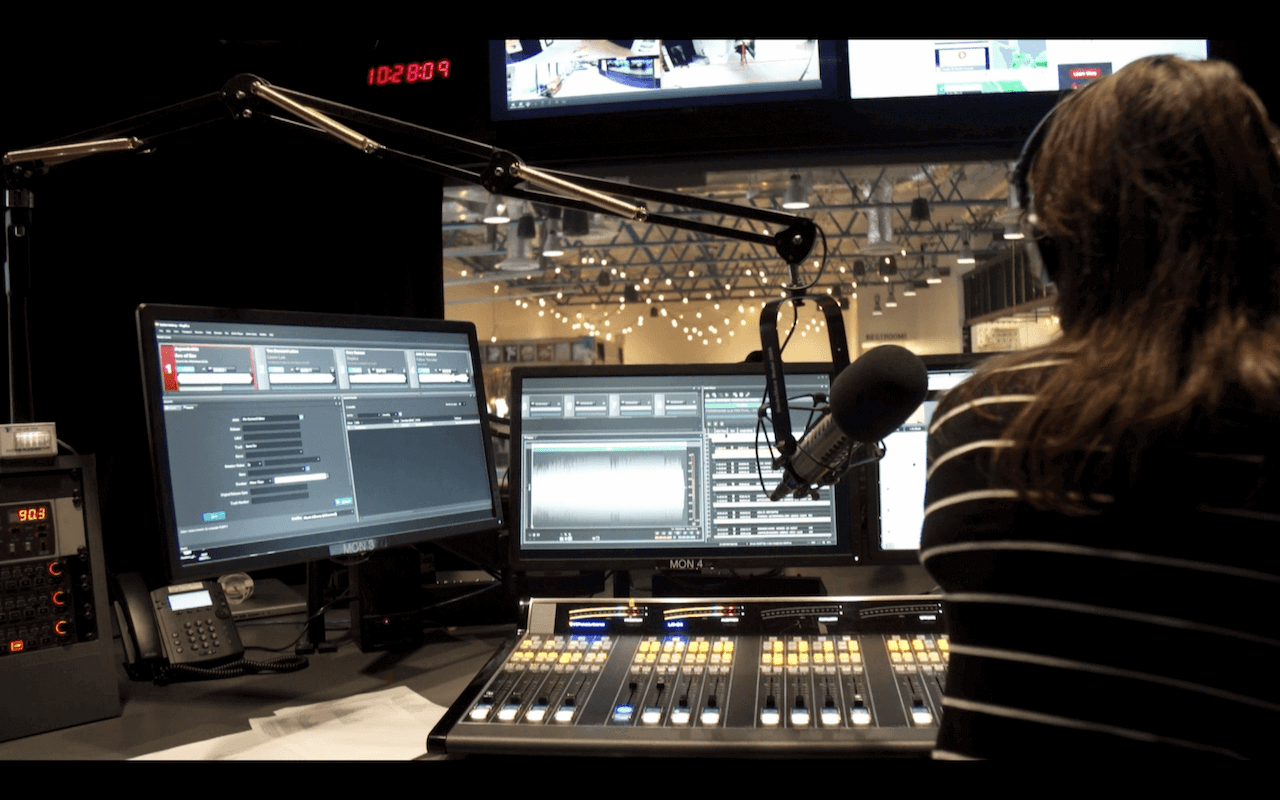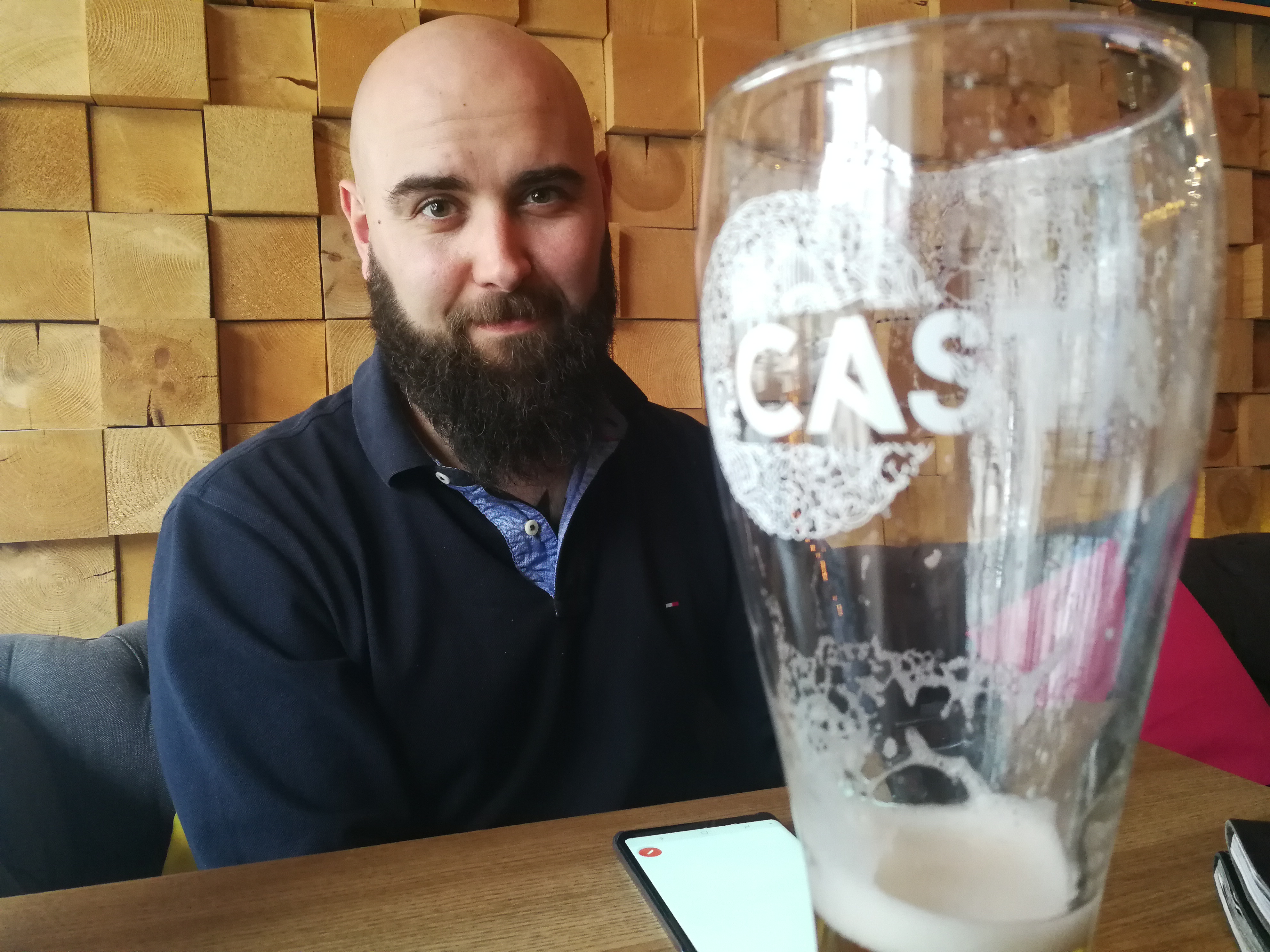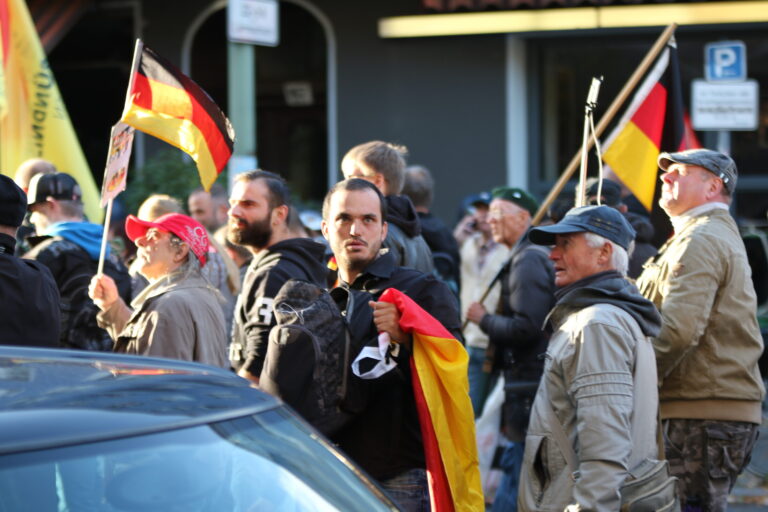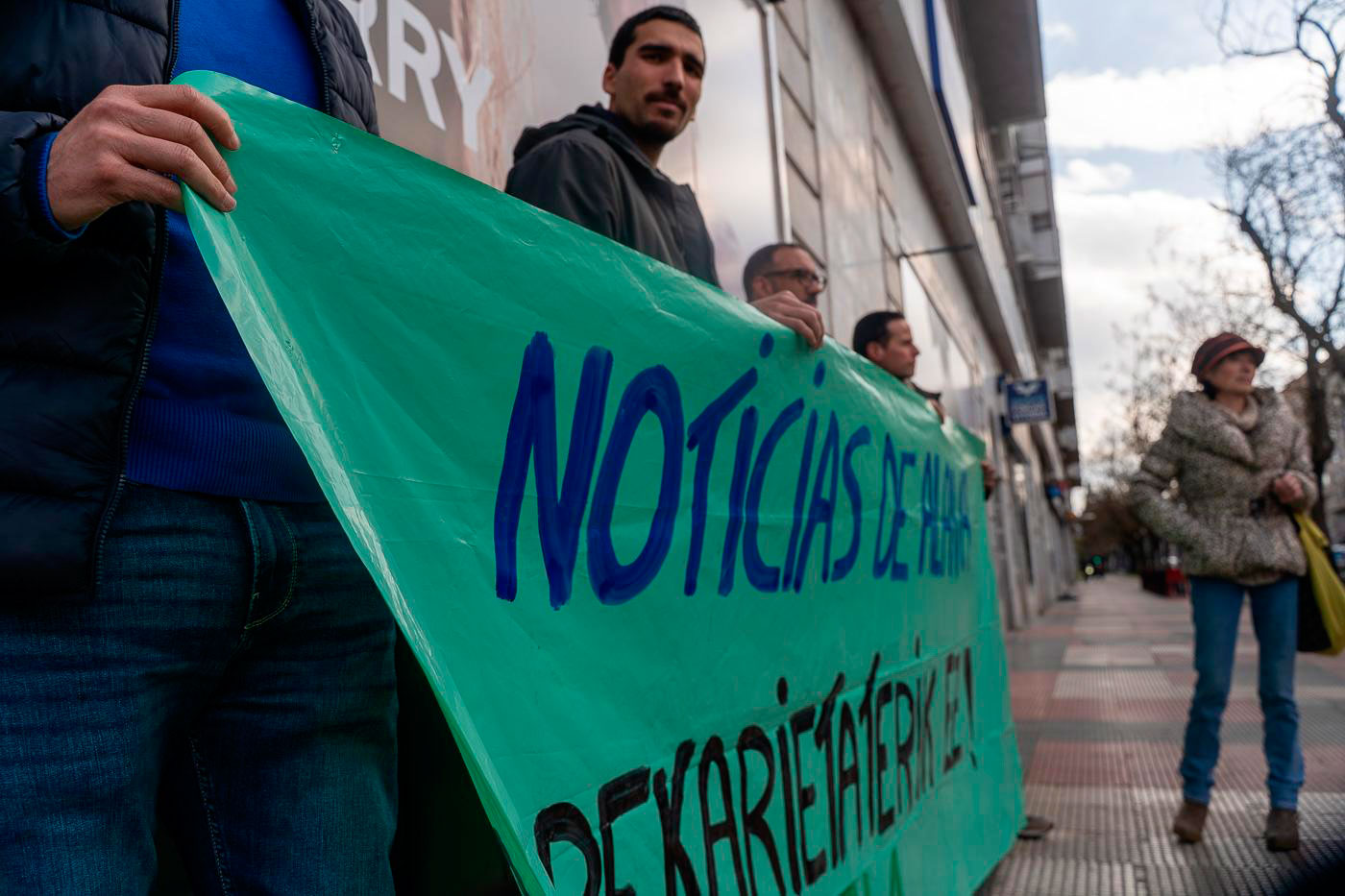"It is impossible to do a real journalism exercise to tell the conflict in Ukraine well, because there is no room for it."
- Born in Getxoztarra, Unai Aranzadi currently lives in Stockholm, Sweden (1975). In recent decades he has worked on four continents (Asia, America, Europe and Africa) to count local conflicts and wars, among others. But in January, in the fall of 2021, he presented in Algorta the documentary recorded from the interior of Guinea-Bissau, Gambia and Senegal: At the expense of two Lançados. Taking advantage of the journey we have met him to talk about it and his long journey.

You're a veteran who has lived in more than one war and conflict. Which of those who have lived most affected you?
Politically, Colombia, but today I would say it is Ukraine. Because I think we're seeing the end of journalism, by the way we tell it. The media say that the war began from day to day, at the whim of a person. But behind this is a start: Maidan. I was there and I know the whole sequence. The media and Western politicians considered this 2013-2014 movement as a revolution, but technically there was a coup: they illegalized the communist party and a dozen parties, and, being Ukraine a multi-country country with more than 130 ethnic minorities, they put into effect laws against all of them. Furthermore, although they want to hide, they allowed the neo-Nazi and ultra-right groups to fight against those who spoke Russian or against the Roma. It is true that these groups are not the majority in Ukraine, but they have managed to impose their hate speech.
Why do you say we're seeing the end of journalism?
Because I find it utterly insensitive to see the hysteria that has arisen in relation to the issue, without doing any journalistic work; everything is propaganda, without making a very reasonable reflection to understand the causes and complexities of this conflict that I call "the Biden War." Consequently, it is impossible to carry out an exercise in real journalism to tell this conflict well, because there is no room for it.
The Biden War...
When the war that we now know broke out, the Ukrainians wanted to negotiate with the Russians: the first week of invasion in southern Belarus and then in Turkey. But US President Joe Bide boarded a plane and moved to Europe to meet with Ukrainian President Volodimir Zelenski and request the suspension of negotiations. However, I believe that, sooner or later, a negotiation will have to be made, because the situation is untenable.
"A documentary is always revolutionary because it has time. Today, in society everything seems light, with 140 characters or a minute. Therefore, the documentary is an opportunity to face it, but the key is in the search for opportunities for social inclusion"
Referring to hysteria, since the beginning of the Russian invasion it seems that people have forgotten the conflict or left it in the background. Have people lost awareness of war?
Perhaps we return to the base, as in 2014, of the coup d'état against Janukovitxe to the war of the east of the country, something forgotten, that attracted little. It seems that the same thing is happening now. Kiev started receiving bombings, but now it is more or less quiet. Everything is at stake in the east, war is there. I do not deny the invasion of Russia, because it has clearly been an invasion, but what is happening in the Donbass area is something else. In fact, their population did not match what was agreed after the Maidan coup d'état.
You have ever mentioned the internationalised civil war. Where does the basis of that conflict come from?
The people of eastern Ukraine did not want independence following the Maidan coup, and Russia did not. The citizens claimed a kind of autonomy within Ukraine, demanded respect and did not accept the coup d ' état. However, the Western authorities decided to block this process completely and, consequently, the current war is the result of a specific chronology, which I believe is a planned conflict.
Furthermore, the Western authorities knew that at some point Russia would feel marginalised and know that Russia always responds hard. I was in the war in Chechnya and had the opportunity to meet Kadyrov in person. I know how those people think, it was clear that they would become aggressive, and so it has been.
You know the conflict in Ukraine since 2014, since then you have gone on a journey. How do you experience these situations?
For me it is very sad. The last trip I made was to Kiev, where local people fled on trains. I am the father of two children and my empathy is always for the citizens, for those who suffer. It was very hard to see women and children taking trains and men staying there because of forced recruitment. However, as I say, frustration is what I have felt the most. Journalism should help to tell the whole sequence of a conflict and to end the problem, to spark debate. But in this case this has not existed, and it is very sad. In my case I've talked about what I've seen, worked under the mortar attack and helped evacuate people. All of this I have recorded, I've put myself on your skin. But when he talks about neo-Nazis or ultra-right groups, or about the corruption of Zelenski, who are well known, I have had to hear that you are a supporter of the Russians and of Putin. Consequently, this debate is poor and mediocre. It is the end of common sense, politics and journalism.

From a press point of view, what is missing in the case of Ukraine?
I believe that this conflict needs to be on the other hand, and I am not referring to the Russian vision, but to the other side of the Ukrainians. When Zelenski says that Donbass and Krimea are Ukraine, he confronts his compatriots, like years ago. And that's the key, it started out as a civil war, the Ukrainians versus the Ukrainians. Then, yes, the mercenaries of Russia and Wagner are incorporated, but the beginning goes on. So I think journalism should tell all of this from the start.
In this case, the weight of propaganda seems to be greater than ever before...
Yes! Everything is propaganda. The only means of communication I know is criticism of the situation and its own line is a means of communication from Berlin. It is a very left-wing media, created in East Berlin in 1947. I have worked with them and have written on their pages the views during the war in Ukraine. They have endorsed the radical left line, and they are very critical of NATO, and I have no problem in saying that I share many things with them. Because here in Euskal Herria, and in many other places, I have not known any media that has a critical view of what is happening in Europe in Ukraine.
But the media agenda is marked by interests. Depending on what?
Journalism is a market, it's a business, and sending journalists to conflicting sites is not cheap. So who controls the narrative? For those who have money to make those shipments, who do not intend to change the order or status quo of things. The aim of these means is to keep things as they are.
We are in a spiral, as we have seen in the case of Ukraine, but also in the pandemic. We can see how the media that you're counting consumes the same, because the base is the same in almost all of them.
"I believe in the social function of public media, which are important and that it is necessary to be well funded to be of quality and as independent as possible"
After that pessimism, why did you decide to be a war journalist?
Because I believed that truth, truth, would find it in war in a very obvious way. But I found the opposite. In war, you say, "the first victim is true."
In addition, I wanted to live history first person, but away from egoisms. Then I realized that "Bang-Bang" doesn't tell stories, let alone being on the front, and over time I've learned that what you have to tell is behind. At some point I would like to be able to tell everything seen from a more personal perspective, in book or documentary format.
Logistically, how do you work in conflict zones?
When I was 20 years old in Gaza (Palestine), I remember seeing a large team from a major media outlet and I said, "Someday I'd like to be able to travel with all those media." Well, it's been over 25 years and I'm still working as badly as I did before, with light baggage, but with all the accumulated experience. I attach great importance to the previous documentation, I like to know all the details of the country I am going to go to. On the other hand, worldwide I have various media outlets, almost none of them in the Spanish state, which I know can buy some work from me. That's how it works.
Depending on what you decide to tell one story or another?
I work because I think it's important. Surely nobody cares about it, and it will be like throwing a bottle of messages into the ocean, but I do it because I think it's important. There are places that I've been burdened with rage, like in 2003 to Uganda, and the conflict was huge, one of which kidnapped the children and turned them into soldiers. With 1,000 dollars, with my camera, I went there, dealt with the issue and published it in a number of major media outlets. I went to make known what happened and, thanks to what was done, I evidenced that forgotten war.
"So far I have had full freedom to work, but always linked to a commission. At some point I would like to do something more personal, that locally would treat something more universal, and Euskal Herria is very conducive to it"
Forgotten or invisible?
Yeah, that's it. Because to forget it you have to know it before and these kinds of stories are not known. Even in the market there is the so-called pain agenda, and the media are working to respond to the needs of this market, not for the benefit of society. Ukraine, for example, offends us now, but before, eight years ago, when the Ukrainian army killed 200 children from Donets, where was their pain? Where was the international mourning? Nowhere. The market is organised according to these interests.
For example, I have worked in eastern Congo to show the situation in which more than five million deaths have occurred. However, there are many economic interests because there are raw materials for making batteries and chips. So what happens there doesn't matter, and if you do, you sell it to us as exotic. On the contrary, if the authorities or the powerful are interested in telling something, they will constantly repeat the issue and, of course, we are not immune.
Those of us who studied journalism, in the first course of the career, the teachers told us that the journalist was a social journalist. Is that still the case?
People who work professionally move according to the market. Information is monetized, which is logical in part because work has a cost. However, I believe that there is no longer a social perspective. As far as I have been able to see over the years, the media workers are complying with what they are being asked for, and the freelance end up playing according to what the market says, and the market has very clear criteria: the neutral is within the neoliberal perspective, and what comes out of it is seen as extreme.
However, it has often been said that journalism is essential to understand the world, but I do not think it is so, it is not necessary for it.
Can all of this be tackled?
When we are young, we face the world with illusion, and that keeps encouraging me. However, over time, we were all wrong. However, I believe in the social function of public media. It is important, however, that public resources are well-funded, of quality and as independent as possible. I have been lucky enough to meet them because the Swedish public media are a benchmark in this task. However, they are slowly in danger of extinction.
In my case, I have always tried to be clean, convinced that what I was counting was worth it. I have never given the love to what I have been able to demand, although at times it has been economically suicidal.
To deal with this market that criticizes, in some way, in 2001 created the production company Independent Docs. How would you summarize the trajectory of this project?
The task must be tackled. However, I have to acknowledge that I have been able to do and say what I wanted, but in exchange for a high professional cost. I worked with great international media, but with those who fed me I started to fight. I didn't share the narrative of the media, because sometimes it was dirty how they dealt with a particular topic, and I started to criticize it.
For example, in 2008, in Bolivia, soldiers tried to kill indigenous people, and when I was back, I noticed that the killings were due to clashes between soldiers and indigenous people, and that was not the case, the main media of the Spanish State. As a result, I began to refuse to deal with various issues, because I was not prepared to go along with the authorities. Somehow, over all these years, I've been working on self-sabotage.
"Africans deserve to live in dignified countries, Africa must be respected, with bilateral benefits in North-South relations. Today, these agreements force many people to migrate, even if they are minority among the population"
On January 14, he premiered in Getxo his last work, A costa dos Lançados. What is the documentary about?
I wanted to show the paradox about the past and present of the migratory movement. In the 15th century, the Jews expelled from Spain and Portugal were the forced to explore West Black Africa fleeing the Inquisition. Now, 500 years later, other poor people have to follow the same path, but in the opposite direction, trying to reach us on boats. It's the fastest-growing and deadliest migratory route in the world. We know the dead, but they disappear even more. However, I am addressing issues such as colonialism, slavery, human rights, North-South inequality relations, corruption, the genesis of the migratory problem in black Africa, but not focusing on the rescue of the sea, but on what encourages the journey to Europe and the reality of these countries.
What's behind these migrations in general?
It somehow comes from the African independence that has come after colonialism. The future or desire of Africans is not to migrate. Lately we're being sold that migration is a positive thing, and that's when you only have it, and the only solution is that. But we cannot shorten migration. Africans have the full right to live in their peoples, in worthy countries. Africans have every right to make Africa a respected continent and to make relations between the countries of the north and the south mutually beneficial.
When you're there, you realize that most people don't want to leave. A minority is willing to migrate. In this case, the migratory path I've approached is the deadliest in the world, and we've known it because we've found dead bodies in the sea. However, we do not know exactly how many disappear. In this sense, I think it is dangerous to think that all Africans want to come to us, that they are their only solution, and that the whole focus or strength must be on their rescue, without neglecting the importance and necessity of the latter. Referring to the past, formerly white Europeans wanted to save the souls of blacks, today their bodies.
In this way, I insist, I do not think it is positive to break with migration, without knowing the cause. Migration must be cut, but not by what the ultra-right say, but because we have to help them to have a dignified life in their country of origin.
For the development of this documentary you received subsidy from Getxo City Hall, right?
Yes, well, the City Hall helped Unesco Etxea, and I did so at their request. So, since this is work from a public subsidy, the idea is, as I have been doing so far, to return the work to the public for free. Because that's what I love most, sharing with people.
What projects do you think about the future?
I'd like to make a documentary or a book that I can develop entirely freely, from a more personal perspective. So far I have been lucky enough to work with the institutions with which I meet, and I have done the orders with pleasure. However, I would now like to tell stories that go from the local to something more universal, and Euskal Herria, from many actors, is very appropriate for it. Because here is a very strong identity, and because of various historical circumstances it is very closely linked to the international.
In 2025, at least one journalist was murdered in Guatemala and another disappeared. It is dangerous to do journalistic work in this country, and so has Reporters Without Borders, in the World Press Freedom Classification 2025, published on May 2. Guatemala ranks 138th out of 180... [+]
Apirilaren 24an, ETB1ean, jendeak aspalditik eskatzen zuen programa eredu bat estreinatuko da: Linbo, late night formatuko ordubete inguruko saioa, gazteek eta gazteentzat egina.
"Ask for your turn and we'll join you," the willing and cheerful announcer who speaks from the studios tells the young correspondent who walks through the streets of Bilbao. The presenter immediately addressed the audience. "In the meantime, we are going to Pamplona..." They opened... [+]
I have to confess a sin here. Four years ago, I introduced a new habit into my life: on Sunday nights, I began to watch the ultra-right television channel CNews, which spreads continuous "information" like a cannon of shit. What was at first half an hour a week, has at any given... [+]
Martxoaren 14an Donald Trumpek agindu exekutibo bat sinatu zuen, hainbat berri agentziak jasotzen duten diru kopurua asko murrizteko. Kaltetuetako bat United States Agency for Global Media (USAGM) izan zen eta, ondorioz, Voice of America (VOA), Radio Free Europe/Radio Liberty... [+]
2022ko ekainaren 7an, Directa-k serie luze bateko lehen polizia infiltratuaren kasua argitaratu zuen. Martxoaren 5ean, Belen Hammad fikziozko izena erreta geratu zen, polizia-argotean dioten bezala. Jada hamar dira Directa, El Salto eta El Diario-k azken hiru urteetan argitara... [+]
USAIDen inguruko txolopotearen ondoren, espero beharrekoa zen. Baina, hala ere, urte askotan haien jarraitzaileak izan garenok, samin-puntu batekin hartu dugu albistea. Martxoaren 15ean, Trump administrazioak, kolpetik, erabat itxi baitu United States Agency for Global Media... [+]
Varsoviako Barrutiko Auzitegiak argudiatu du González jada ez dagoela Polonian, eta ezin dutela jakin noiz aterako den Errusiatik. Auzitegiak ez du kazetari nabarniztarraren aurkako bestelako prodezurarik abian jarriko.
Gaur abiatu da Bizi Baratzea Orrian kide egiteko kanpaina. Urtaro bakoitzean kaleratuko den aldizkari berezi honek Lurrari buruzko jakintza praktikoa eta gaurkotasuneko gaiak jorratuko ditu, formato oso berezian: poster handi bat izango du ardatz eta tolestu ahala beste... [+]
Alemaniako Poliziak asteleheneko gertakariaren arrazoiak "politikoak" zirela baztertu duen arren, 35 urteko Alexander Scheuermann Ring Bund talde neonaziko kide zen. Bi hildako eta hamar zauritu utzi dituen atentatuaren egileak sare sozialetan "gorroto mezuak"... [+]
Lan baldintzen "prekarietatea" salatzeko kontzentrazioa egin zuten asteartean egunkariaren egoitzaren aurrean. Abenduaren 2tik sindaura greban daude langileak eta mobizlizazioak "areagotzea" erabaki dute orain.
Urtea baino gehiago da Olatz Simonek –EITBko berriemailea Parisen, garaian–, orrialde hauetan bertan ohartarazi zigunetik Bruselak kazetariari lanbideaz erakusten dionaz. Eta halaxe joan gatzaizkio galdezka Amaia Portugali. Bruselan gure irrati publikoak duen... [+]









